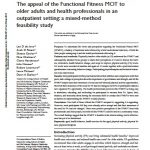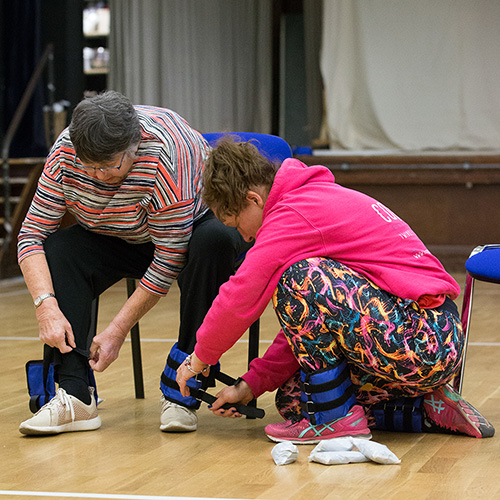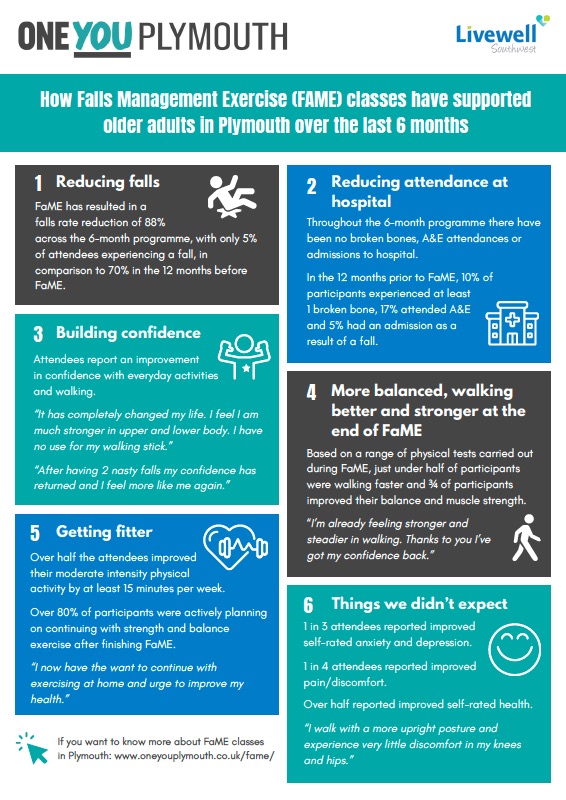 Working with colleagues in NHS Lothian and Glasgow Caledonian University, LLT looked at the feasibility of delivering the FFMOT to change activity behaviour in older patients attending musculoskeletal outpatient clinics. This mixed-method study aimed to understand the views and perceptions of both patients and staff.
Working with colleagues in NHS Lothian and Glasgow Caledonian University, LLT looked at the feasibility of delivering the FFMOT to change activity behaviour in older patients attending musculoskeletal outpatient clinics. This mixed-method study aimed to understand the views and perceptions of both patients and staff.
Most participants felt they had learned about their abilities and comparisons with their peers, had a change in perception about the importance of good balance and strength, and felt the FFMOT helped raise their awareness of local and self-directed physical activity opportunities.
The health professionals perceived the FFMOT as being easy to administer, educating, and motivating for participants to increase their PA. Space, time, finances, and insecurity about having the necessary skills to conduct the FFMOTs (the FFMOTs were run by technical assistants) were seen as barriers in implementing the FFMOT in daily practice.
There were positive perceptions of the FFMOT from both professionals and older people, but both felt the FFMOT could be held in a community venue. The overall findings suggest that the FFMOT is feasible in the clinical setting, but its effectiveness has yet to be determined.
You can read the journal publication here.





